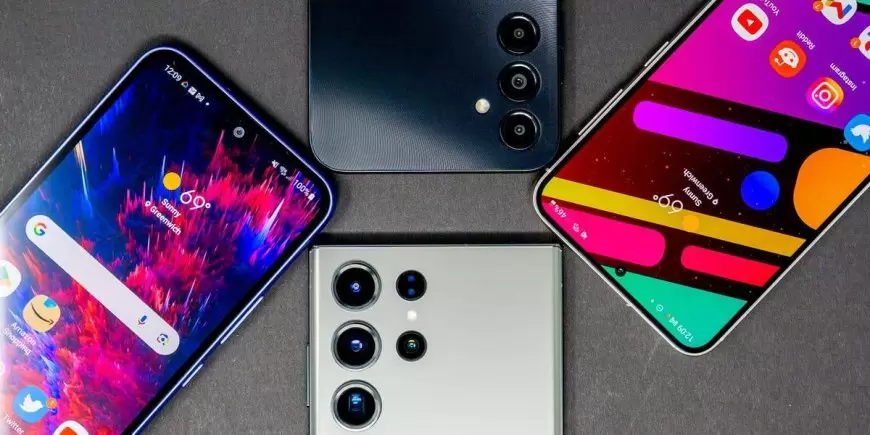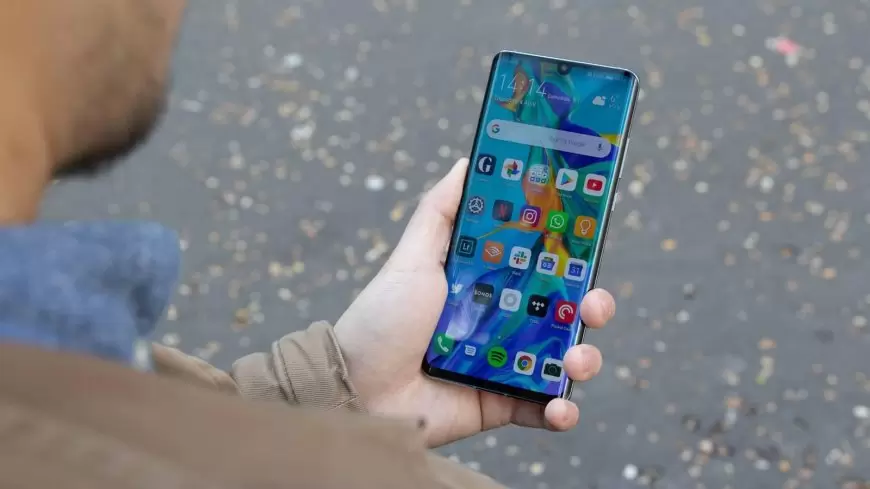The world of mobile phone plans is often shrouded in misconceptions and myths that can lead consumers to make less informed decisions. These myths range from beliefs about contract terms to misconceptions about data usage and network coverage.
In order to choose the best mobile plan for you and not make a mistake you'll end up regretting, we'll debunk some of these popular myths, and clarify what's true and what's not in the realm of phone plans.
Let’s get started, shall we?
Unlimited Plans Are Always the Best Option

The first thing we want you to know is that a lot of folks believe that unlimited plans are always the best choice, regardless of your usage patterns. While unlimited plans offer the peace of mind that comes with not having to monitor data, call, or text usage, they're not always the most cost-effective option.
For users with moderate or low data usage, opting for an unlimited plan can result in paying for services they don't need. It's crucial to assess your actual usage before choosing a plan. If you find that your data consumption is low, a plan with a fixed data limit at a lower price might be more suitable and economical.
Overages are Always Extremely Expensive

Another myth is the fear of exorbitant overage charges. While it's true that some plans can have high charges for data, calls, or texts beyond your plan's allowance, this is not a universal rule. Many providers now offer plans where, instead of incurring hefty overage charges, your data speed is simply throttled (slowed down) once you hit your limit, allowing you to still use data without extra fees.
Additionally, many carriers have options for setting usage alerts or caps to prevent unexpected overages. It's important to read the fine print and understand your plan's overage policies.
You’re Stuck with Your Contract Until It Ends
It's also important to mention that many consumers believe that once they sign a mobile phone contract, they are bound to it until it expires. However, most carriers offer options to upgrade or change plans, even within a contract period.
There may be fees associated with these changes, but they offer flexibility for those whose needs change mid-contract. Furthermore, regulatory changes in many regions have made it easier for consumers to switch providers without incurring heavy penalties, promoting greater flexibility and consumer choice in the mobile plan market.
Prepaid Plans Offer Inferior Service
There’s a common misconception that prepaid plans offer inferior service compared to postpaid plans. This isn’t necessarily true. Prepaid plans often use the same networks as postpaid plans and offer similar data speeds and call quality.
The difference lies in the payment structure and the absence of a long-term contract with prepaid options. For many users, especially those who prefer not to be tied to a contract or who have fluctuating usage patterns, prepaid plans can be a practical and economical choice.
Network Coverage Is the Same for All Carriers

Another myth is that all carriers provide similar network coverage. In reality, network coverage can vary significantly between carriers, especially in rural or remote areas.
It's essential to check the coverage maps of different carriers for your specific area before deciding on a plan. Just because a carrier offers excellent coverage in one city or region doesn’t mean it will be the same in another.
You Need to Pay Extra for Good International Roaming Rates
Many people believe that good international roaming rates are only available at an extra, often substantial, cost. While international roaming can be expensive, some plans include favorable international roaming rates or even free roaming in certain countries.
With the increasing competition among carriers, more are including better international options in their standard plans. It's worth exploring these options, especially if you travel frequently.
More Data Is Always Better

We also want you to understand that the assumption that more data automatically equates to a better plan isn't always accurate. While having a large data allowance can be comforting, it's only beneficial if you actually use it.
Unused data is essentially wasted money. Assessing your actual data usage and choosing a plan that aligns with your needs is more economical. Many carriers also offer rollover data, where unused data is carried over to the next month, making plans with slightly lower data limits more appealing.
Switching Carriers Is a Hassle
There’s a prevailing myth that switching carriers is a complicated and lengthy process, but this is often not the case. Many carriers make the switch as smooth as possible to attract new customers.
Number portability, which allows you to keep your existing phone number when changing carriers, has also become a standard practice, making the switch more convenient.
Smaller Carriers Have Poorer Service Quality
A common misconception is that smaller or lesser-known mobile carriers offer inferior service quality compared to the major players in the industry. This myth stems from the assumption that bigger brands automatically equate to better service.
However, many smaller carriers use the same physical network infrastructure as the larger carriers. This means they can provide comparable coverage and data speeds. The primary difference often lies in the pricing and customer service models.
In fact, some smaller carriers are noted for their customer-centric approach and competitive pricing, making them a viable and often attractive option for many consumers.
When considering a smaller carrier, it’s important to research and understand the specifics of their service offerings, including any limitations or unique benefits. User reviews and independent carrier ratings can provide valuable insights into the real-world performance and reliability of these carriers.
Wi-Fi Calling and Texting is Widely Available on All Plans
There’s a myth that Wi-Fi calling and texting are standard features available on all mobile phone plans. While Wi-Fi calling is indeed a feature that many carriers offer, its availability can vary significantly between plans and carriers. Wi-Fi calling allows you to make and receive calls and texts over a Wi-Fi network, which can be particularly useful in areas with poor cellular coverage.
Some plans may include Wi-Fi calling as a standard feature, while others may require you to have a specific type of plan or even a particular handset model. Additionally, the quality of Wi-Fi calling can depend on the strength and speed of the Wi-Fi connection, which can vary greatly in different locations.
Before relying on Wi-Fi calling and texting as your primary means of communication, verify with your carrier whether this feature is included in your plan and understand any associated limitations or requirements.
The Role of Research in Picking the Best Phone Plan
Before picking a phone plan, it's important to do research that goes beyond just comparing prices. It's about finding a service that fits your lifestyle and contact needs.
This decision, often overlooked, can have a significant impact on both your financial outlay and daily satisfaction with your mobile device. You can also take a look at this link https://mobilabonnement.com/ if you want to understand more. By thoroughly researching, you gain insights into your personal usage patterns, which is crucial because everyone’s mobile usage is distinct.
Some individuals may consume large amounts of data streaming videos or using social media, while others might primarily need ample call minutes and text messages. Understanding these specifics helps in selecting a plan that offers sufficient resources without the burden of unnecessary extras, thereby optimizing your spending.
Additionally, the importance of research lies in its ability to provide a comprehensive comparison of features and costs across different carriers. This comparison isn't just about finding the most affordable option but about finding the best value – a plan that delivers the necessary features at a reasonable price.
Moreover, research plays a crucial role in evaluating network coverage and service quality. The efficiency of a mobile plan is heavily dependent on the carrier's coverage, especially in areas where network connectivity is a known issue.
Ensuring that a carrier offers robust service in your area and supports advanced network technologies like 4G or 5G can vastly improve your overall mobile experience.
Another critical aspect that research uncovers is the array of hidden costs and terms that can accompany a phone plan. These might include activation fees, charges for exceeding data limits, or additional costs for supplementary services, which can significantly inflate your expected expenditure.
Thorough research helps in understanding these intricacies, enabling you to make a well-informed decision that mitigates the risk of unforeseen charges.
In addition, delving into the specifics of available plans can reveal special offers, discounts, or bundle deals that might otherwise go unnoticed. For certain groups like students, seniors, or military personnel, these offers can lead to substantial savings.
Research also informs you about the contractual commitments involved with many postpaid plans, including the duration of the commitment, penalties for early termination, and the flexibility to change or upgrade your plan.
It's also important to keep up with changes in technology because the world of telecommunications is changing quickly. Keeping up with the newest technologies, like the rollout of 5G networks, can change how you use your phone and make your decision more final.


![[WATCH VIDEO] Sophie Rain and sister Sierra Rain as Black Spiderman goes viral [WATCH VIDEO] Sophie Rain and sister Sierra Rain as Black Spiderman goes viral](https://www.sociallykeeda.com/uploads/images/202403/image_140x98_660976c59cce0.webp)


![[WATCH] Meia Cassandra Viral Video Leaked; scandal explained [WATCH] Meia Cassandra Viral Video Leaked; scandal explained](https://www.sociallykeeda.com/uploads/images/202401/image_140x98_65b7605057a56.webp)

![[FULL WATCH VIDEO] Will Levis And Gia Duddy Leak Video Viral On Social Media [FULL WATCH VIDEO] Will Levis And Gia Duddy Leak Video Viral On Social Media](https://www.sociallykeeda.com/uploads/images/202405/image_140x98_6651e7ae8038d.webp)


![[Watch] Riya Barde Bangladeshi Adult Film Actress Viral Full Video [Watch] Riya Barde Bangladeshi Adult Film Actress Viral Full Video](https://www.sociallykeeda.com/uploads/images/202409/image_140x98_66f92d1749da6.webp)
